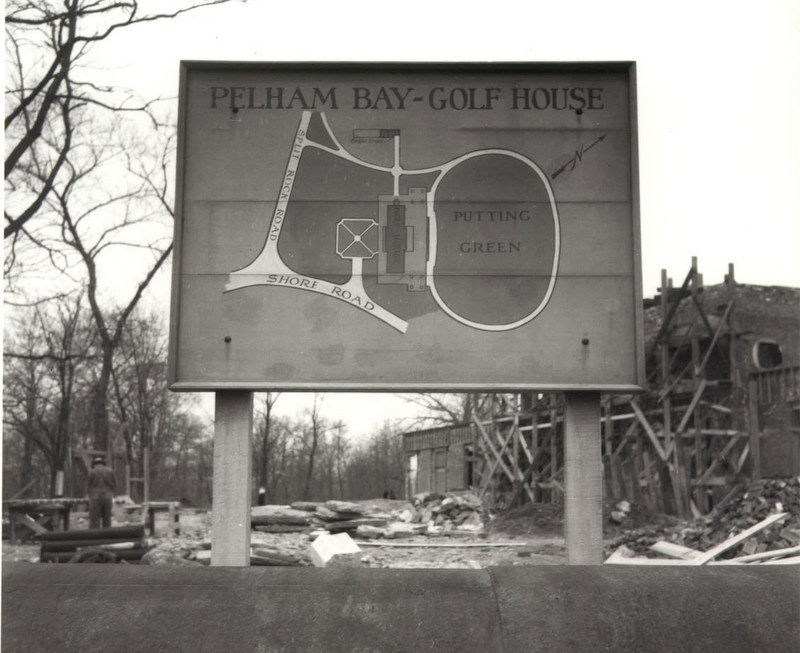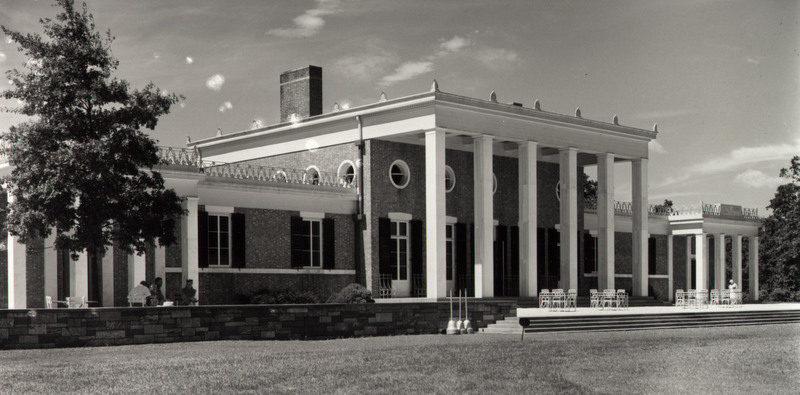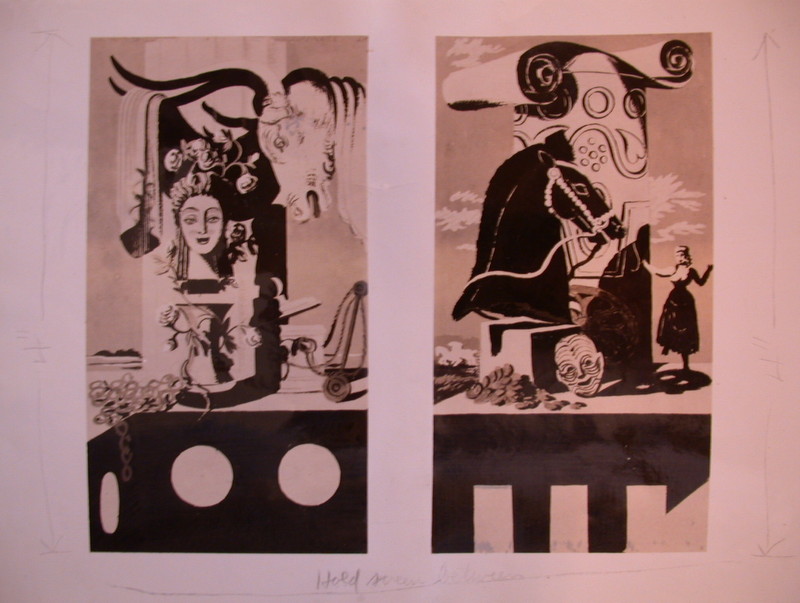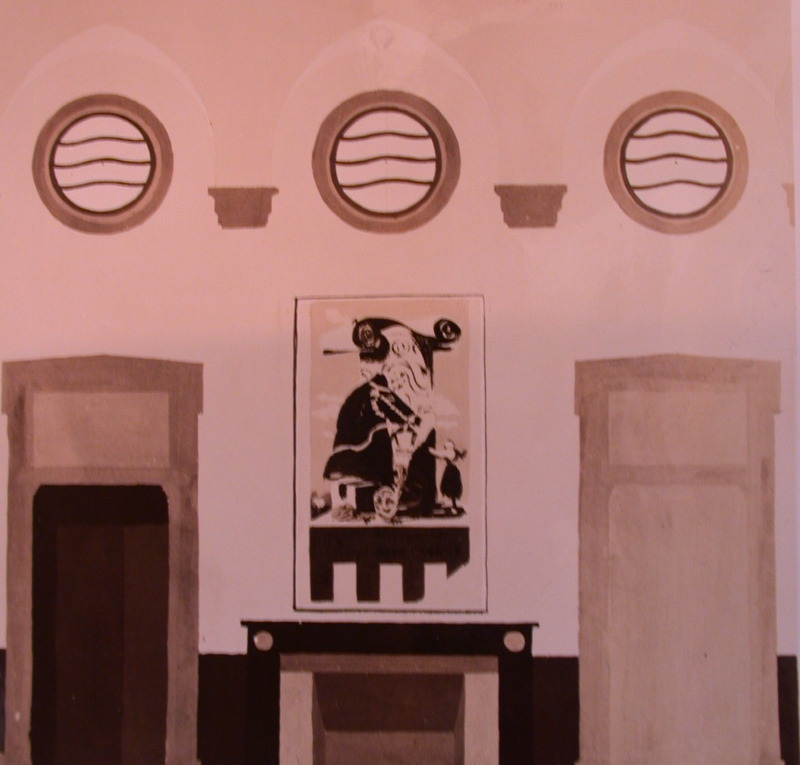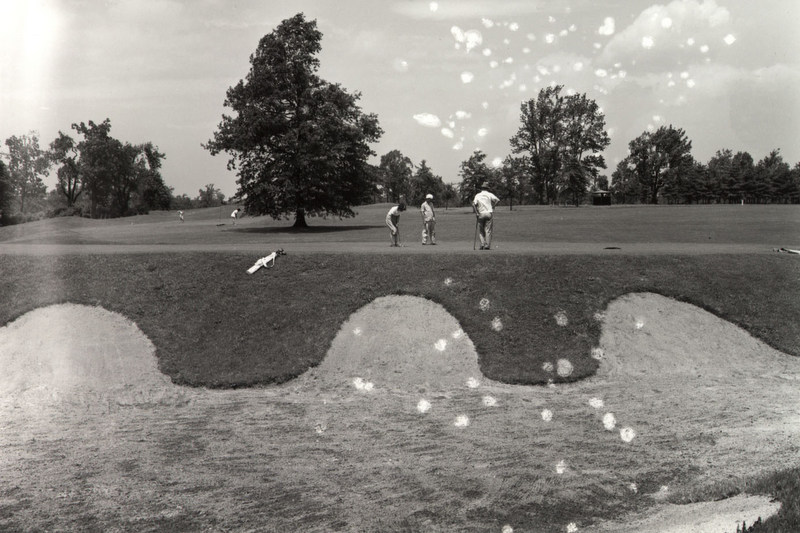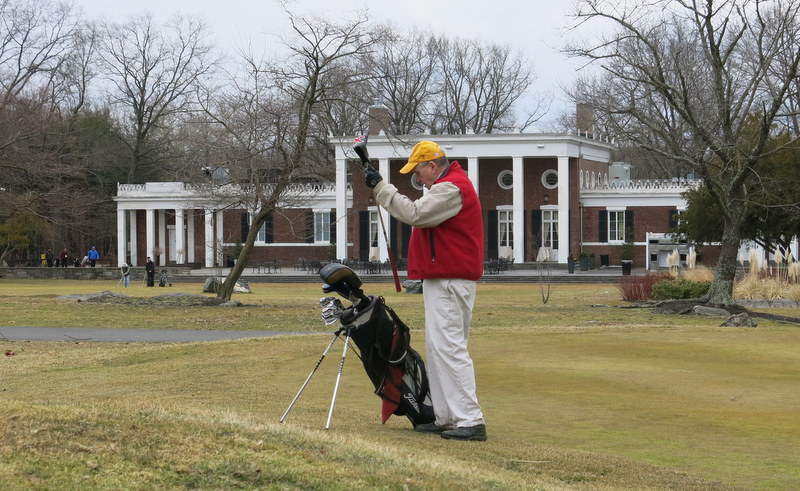
http://czechinthekitchen.com/tag/ice-cream/ Hacker, Pelham Bay Golf Course, Bronx, New York, March 1, 2013.
Hacker (real name), Rick, and I played in Pelham Bay Park, in the Bronx, on Friday. There are two golf courses, both owned by the City of New York—Pelham Bay and Split Rock—and they share a clubhouse, which you can see in the background in the photo above. It was built in 1936, and it has a cobblestoned driveway and front courtyard, and it has neoclassical columns made of white Tuckahoe marble. Here’s what the building looked like when it was under construction (beyond the sign):
And here’s what it looked like when it was finished:
The first time my friends and I played Pelham and Split Rock, in 2004, the clubhouse was a mess. Glass was missing from many windows, and the front door had a hole that was big enough for rats to walk through on their hind legs. The Parks Department had bolted cheap outdoor floodlights to a pair of hemispherical hammered-bronze light fixtures in the Club Room, and it had installed an institutional drinking fountain in front of one of two basalt-and-marble fireplaces. The building was no longer heated, if it ever had been, and on one frosty winter morning we saw piles of construction debris burning in both fireplaces—Irish guys in front of one, Korean guys in front of the other. Here’s what the Club Room looked like in the 1930s:
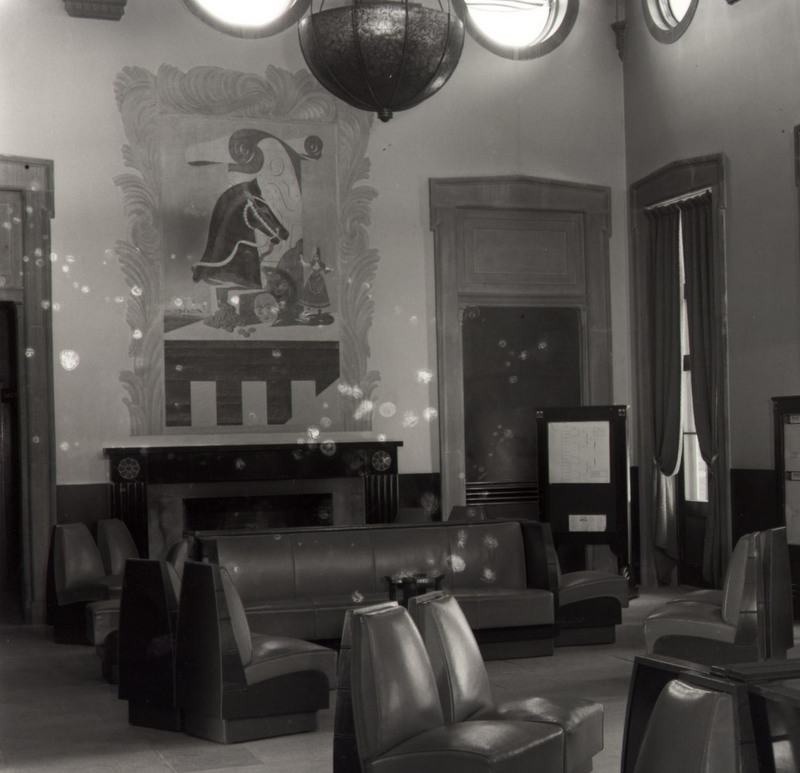
Club Room, 1930s. The Parks Department later bolted flood lights to the Art Deco light fixture at the top of the picture, and installed a drinking fountain in front of the fireplace.
A year or two after we first played there, American Golf, which operates both courses on a twenty-year lease from the city, spent millions to restore the clubhouse. The architect was Page Ayres Cowley, and she and her colleagues did an extraordinary job. Here’s what the Club Room looked like on Friday:

Club Room, 2013. The floodlights have been removed from the hammered-bronze light fixtures. Why don’t you quit fooling around, and rent the clubhouse for your daughter’s wedding reception?
When the Pelham clubhouse was built, the artist Allen Saalburg created a Surrealist mural for the wall above each mantle. (Saalburg was a friend of Dorothy Parker, S.J. Perelman, Robert Benchley, and other early New Yorker contributors.) His murals—one of which is visible in the 1930s Club Room photograph—were still there when my friends and I first played the courses, but today the spaces they occupied are filled by a pair of hokey recent paintings, which depict what are supposed to be period scenes. The murals, Cowley told me, haven’t been destroyed, unlike similar ones that Saalburg painted, at around the same time, for the restaurant Tavern on the Green. But they need significant restoration work before they can go back up. Here is one of Saalburg’s sketches for the murals:
There’s not a lot of golf iconography in there, at least as far as I can see, but I hope somebody rich steps up and pays for their restoration. (Hey, Donald Trump!) And here’s how Saalburg visualized the fireplace wall you can see in the photos above:
The round windows, and their wavy muntins, are still there—and they have glass in them now. Cowley told me she thinks some of the original bunkers on the course may have been designed to echo the shape of the windows, or vice versa. Here’s one of them, from the 1930s:
Maybe so. Anyway, Hacker, Rick, and I arrived at 10:30, and teed off almost immediately. (My greens fee was $39, walking; theirs, because they’re seniors, was $20.) There were pretty many other golfers, although we weren’t held up too seriously. We played skins and Ball Marker Stymies, and we finished in less than four hours. These guys were teeing off on the first hole as we putted out on the ninth:
 The big rusty thing you see in the woods beyond them is part of a commuter rail line, which separates the two courses. And the grass you see through the trees is the eighteenth hole at Split Rock, which was closed—probably because it has more trees and takes longer to dry out than Pelham Bay does. I got home at 4:30 and took the dog for a nice long walk.
The big rusty thing you see in the woods beyond them is part of a commuter rail line, which separates the two courses. And the grass you see through the trees is the eighteenth hole at Split Rock, which was closed—probably because it has more trees and takes longer to dry out than Pelham Bay does. I got home at 4:30 and took the dog for a nice long walk.

